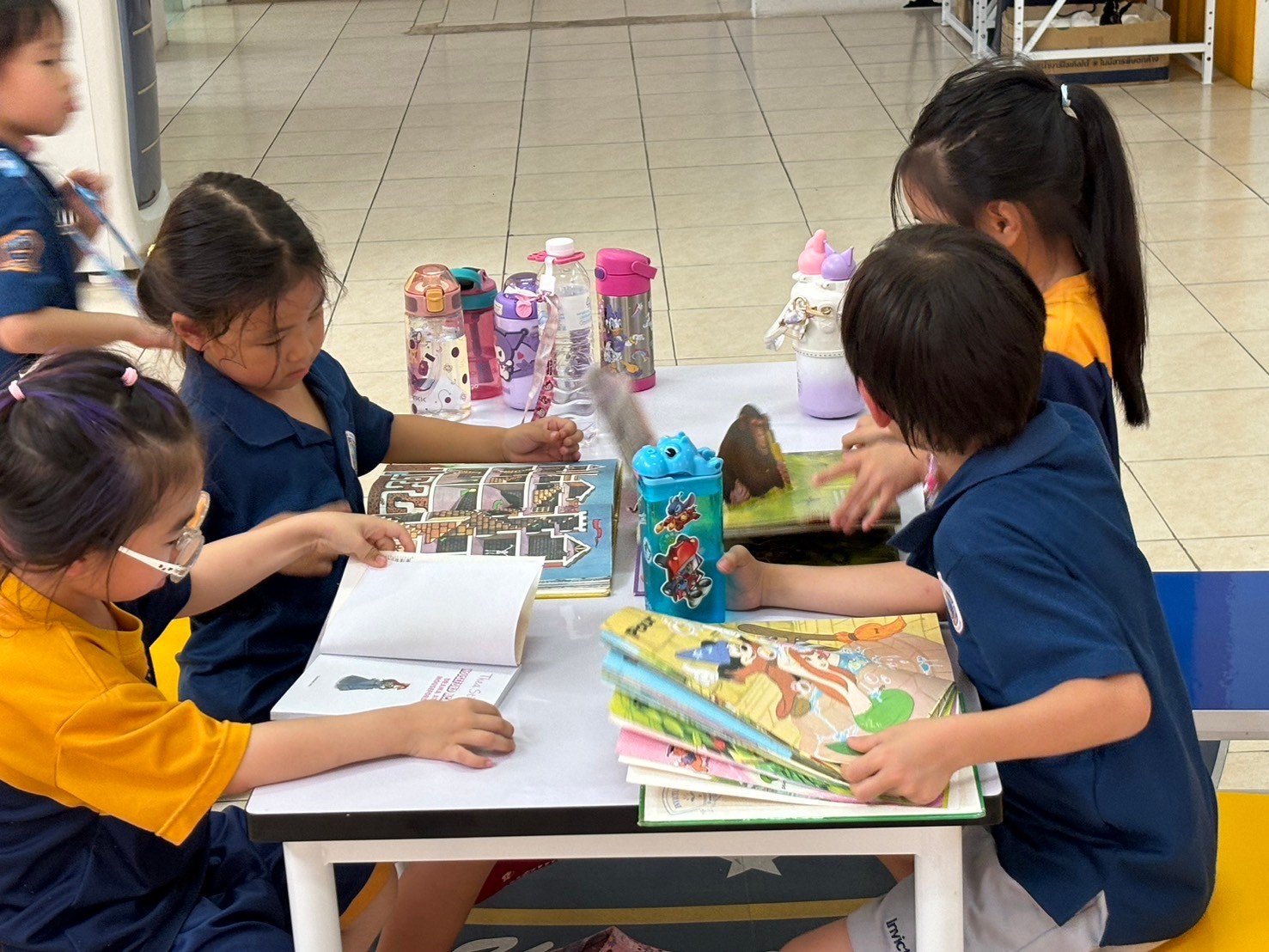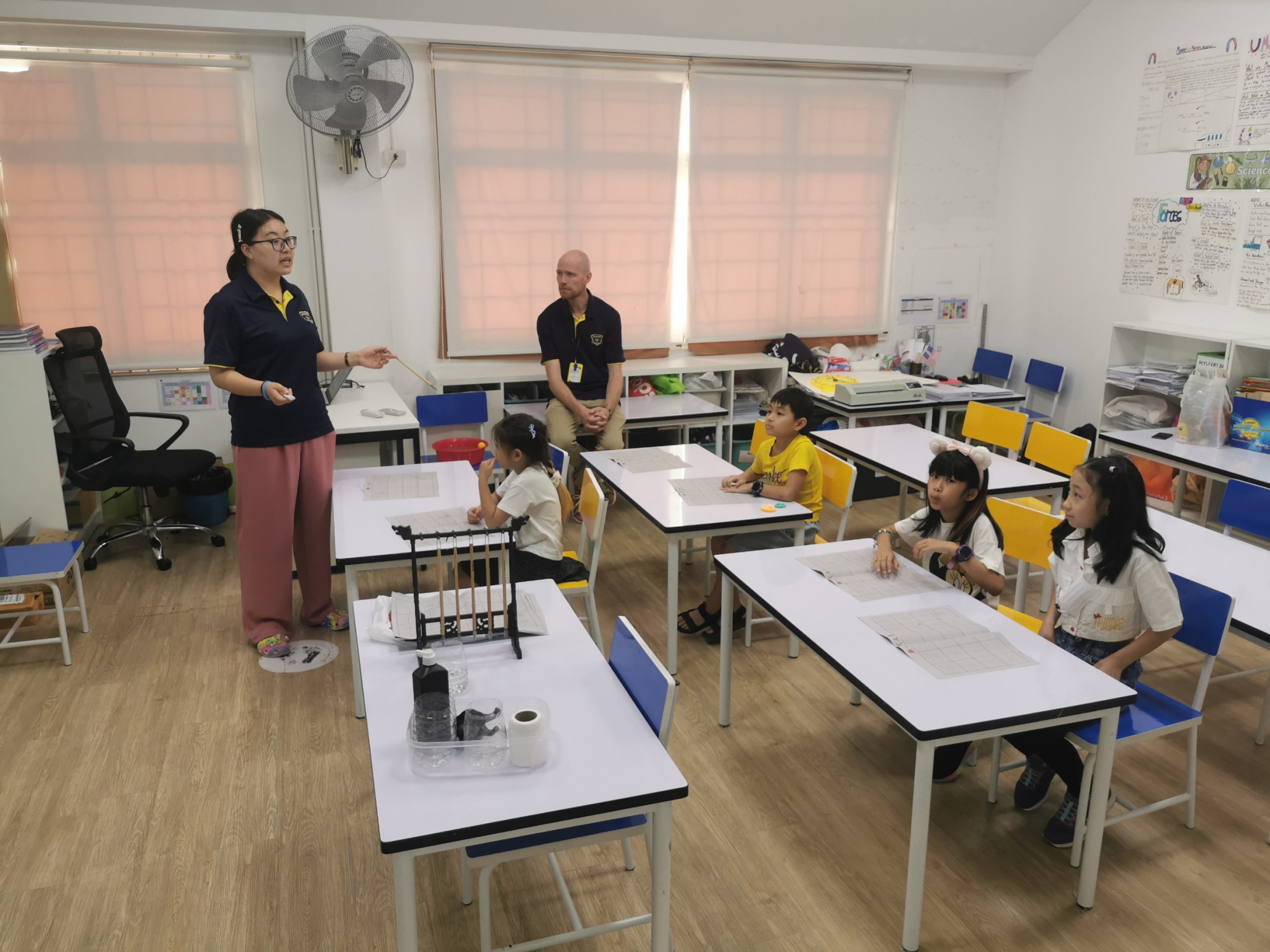Academic Staff
Mastering Languages in Thai International Schools
 Learning languages is a valuable skill that opens doors to many opportunities. In Thai international schools, students have the chance to learn other languages. This ability enhances their communication skills and helps them connect with diverse cultures. Knowing more than one language is important in our connected world.
Learning languages is a valuable skill that opens doors to many opportunities. In Thai international schools, students have the chance to learn other languages. This ability enhances their communication skills and helps them connect with diverse cultures. Knowing more than one language is important in our connected world.
International schools in Thailand provide a rich environment for language learning. The diverse student body and curriculum encourage learning languages. Students hear and practise different languages daily, making it a natural part of their lives. This exposure helps them become fluent more quickly.
The benefits of learning languages go beyond just speaking. It improves cognitive skills like memory and problem-solving. Students who speak several languages also perform better academically. They can switch between tasks more easily and understand complex topics better.
Supporting language learning at home is also crucial. Parents can help by practising languages with their children. They can use books, games, and online resources to make learning fun. Encouraging children to use different languages in everyday situations strengthens their skills. This support makes a big difference in their language learning journey.
Mastering languages prepares students for a bright future. It helps them succeed in school and gives them an advantage in their future careers. Thai international schools offer the perfect setting for this important learning.
Benefits of Learning Languages in International Schools
Learning languages in international schools offers numerous benefits. One major advantage is improved communication skills. Students who speak more than one language can connect with people from different backgrounds. They can understand different cultures, which makes them more open-minded.
Benefits of multilingualism include:
- Cognitive Development: Learning languages boosts brain function. It improves memory, problem-solving skills, and creativity.
- Academic Success: Bilingual or multilingual students often perform better in subjects like maths and science. They can focus better and switch between tasks more easily.
- Career Opportunities: Knowing multiple languages opens doors to jobs worldwide. It is a valuable skill in many fields, such as business, tourism, and diplomacy.
- Cultural Awareness: Speaking different languages helps students understand and respect other cultures. This awareness is important for building a harmonious global community.
By learning languages, students become well-rounded individuals. They gain skills that are not just useful in school, but in life. Their ability to communicate and understand various perspectives prepares them for a globalised world.
 Effective Teaching Methods for Language Learning
Effective Teaching Methods for Language LearningTeaching languages effectively requires the right methods. International schools use proven techniques to help students become fluent. These methods make learning languages fun and engaging.
Effective teaching methods include:
- Interactive Lessons: Using games, songs, and activities makes learning languages enjoyable. Students remember words and phrases better when they are having fun.
- Immersion: Surrounding students with the language they are learning helps them pick it up quickly. Speaking, listening, reading, and writing in the language daily builds their skills.
- Technology Integration: Language learning apps, videos, and online exercises provide interactive and personalised practice. These tools can cater to different learning paces and styles.
- Bilingual Education: Teaching some subjects in the target language reinforces learning. For example, a science class taught in French helps students practise the language naturally.
Teachers also encourage students to use the languages in real-life situations. Role-playing activities, conversations with native speakers, and language clubs provide practical practice. These methods ensure that students are not just learning a language, but using it confidently. These effective techniques make mastering multiple languages achievable and enjoyable for every student.
Language Immersion Programmes and Their Impact
Language immersion programmes are a powerful way to learn a new language. These programmes surround students with the target language, helping them become fluent faster. By using the language in various settings, students gain practical skills.
Impact of immersion programmes includes:
- Enhanced Fluency: Immersion forces students to think and communicate in the target language. This constant practice makes them more comfortable and confident.
- Cultural Understanding: Students learn about the culture associated with the language. This understanding adds depth to their language skills and makes learning more meaningful.
- Improved Pronunciation and Grammar: Regular use of the language improves their pronunciation and helps them master grammar rules naturally.
Immersion programmes may involve travelling to a country where the language is spoken or participating in local immersion activities. Schools might organise trips, exchange programmes, or cultural events where students use the language in real-life scenarios. This immersive environment accelerates learning and makes the experience enriching and enjoyable.
Supporting Language Learning at Home and Beyond

Parent involvement is crucial in supporting children’s language learning. At home, parents can create an environment that encourages language practice. This support helps reinforce what students learn at school and makes language learning more effective.
Ways to support language learning at home:
- Daily Practice: Encourage children to use the language in everyday conversations, such as during meals or family activities.
- Educational Resources: Use books, apps, and games that focus on language learning. These tools make practice fun and interactive.
- Cultural Exposure: Watch movies, listen to music, or cook dishes from the culture of the target language. These activities make learning more engaging and relevant.
Beyond home support, community resources can aid language learning. Libraries, language clubs, and cultural organisations offer events and materials that promote language practice. Engaging with these resources provides students with more opportunities to use their language skills in various contexts. This extra practice helps them become more proficient and confident speakers.
Conclusion
Mastering languages in Thai international schools brings many benefits. It improves communication skills, boosts cognitive development, and enhances cultural understanding. Effective teaching methods and immersion programmes make language learning engaging and practical. With support at home and from the community, students can practice and improve their skills daily.
At Invictus International Pathum Thani, we are dedicated to helping students become proficient in languages. Our Cambridge international education programmes are designed to make learning enjoyable and effective. Contact Invictus International Pathum Thani today to see how we can support your child’s language learning journey and help them thrive in a globalised world.